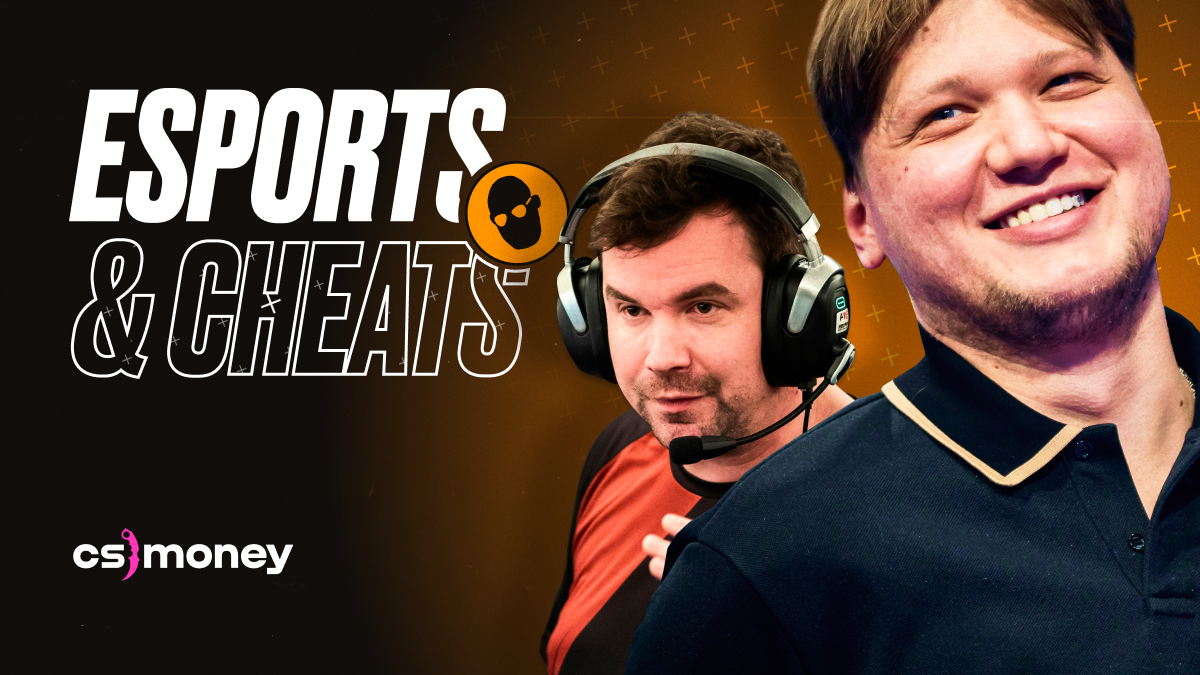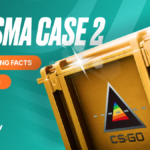Counter-Strike is one of the longest-running game series, with over 25 years of history. It has been the gold standard for competitive shooters for over two decades. And where there’s competition, there will always be those tempted to bend or outright break the rules. Today, the CS.MONEY Blog takes a look at some of the most infamous individuals in the history of Counter-Strike.
By the way, we’re hosting a raffle with amazing prizes! Click the banner, complete Battle Pass tasks, and increase your chances of getting a fantastic skin for free!

VAC Ban: Hovik “KQLY” Tovmassian
One of the most infamous cheating scandals, if not the most infamous, involves Hovik “KQLY” Tovmassian. After the release of Counter-Strike: Global Offensive in 2012, KQLY was one of the most promising French players. Exceptional skill, top-tier teams, and two Major semifinal appearances—but there was one major issue. In November 2014, KQLY received a VAC ban, which he himself admitted was “deserved.”
KQLY’s ban not only put his career on hold but also left his team, Titan eSports, out of the running at DreamHack Winter 2014. At the time of the ban, KQLY was playing for Titan, which had been considered a strong contender.
VAC Ban: Gordon “Sf” Giry

Around the same time as KQLY, another French player, Gordon “Sf” Giry, was caught by Valve’s anti-cheat system. The situations were strikingly similar—both players had previously played in Major playoffs, and their teams had been title contenders throughout the season. The consequences of Sf’s ban were also nearly identical.
After receiving a red card from Valve, Sf left his playing career behind. His team, Epsilon eSports, was disqualified from DreamHack Winter 2014, just like Titan.
Joel “emilio” Mako: VAC Ban During a Match
Another notable VAC ban happened in the fall of 2014. Joel “emilio” Mako, who was then playing for Team Property, received a ban during a live match against HellRaisers. Surprisingly, this didn’t mark the end of emilio’s career. He continued playing actively for a team called Dreamchasers.
The three high-profile bans in the fall of 2014 sparked a conversation about professionalism in the competitive CS:GO scene. It also led to a brief “witch hunt” season, with even well-known players like:
- Fabien “kioShiMa” Fiey;
- Robin “flusha” Rönnquist;
- Jesper “JW” Wecksell;
- and others being accused of dishonesty.
Moreover, this wave of scandals significantly undermined trust in the VAC system—a problem the CS community still struggles with today.
BATTLE PASS PROMO CODE: LYYEUNB3
Nikhil “Forsaken” Kumawat and the infamous Word.exe
While the previous scandals occurred during the early days of competitive CS:GO and primarily involved European players, the “word.exe” incident with Forsaken came much later and had far greater consequences. Let’s briefly recap the situation.
In 2018, OpTic Gaming, one of the world’s largest organizations, decided to enter the Indian scene. They formed OpTic India and signed contracts with five promising players.
Within months of the team’s formation, a major scandal erupted. During a live match, admins caught Nikhil “Forsaken” Kumawat red-handed. They discovered a trigger bot on his PC under the unimaginative name “word.exe.” The cheat’s name quickly became a meme.
OpTic Gaming swiftly terminated not only Forsaken’s contract but also those of the other four players, effectively disbanding the team. This incident severely hindered the development of the Indian professional scene.
Nicolai “HUNDEN” Petersen and the coaching bug
The fifth and most significant scandal in today’s story isn’t directly related to cheats. It involves Nicolai “HUNDEN” Petersen, the former coach of Heroic, and his abuse of the infamous coaching bug.
In September 2020, HUNDEN received a one-year ban from ESIC for exploiting the coaching bug. He wasn’t the only coach caught using it, but his story didn’t end there.
A year later, HUNDEN found himself in the spotlight again. This time, he was accused of leaking his team’s playbook. The accusations were proven true, and he received a two-year ban. Despite this, HUNDEN has continued his coaching career, though with such a tarnished reputation, it’s unlikely he’ll ever work with a top-tier team again.
Gaming Center
A gaming center is a dedicated space where people come together to play video games, whether on PCs, consoles, or arcade machines. These centers can offer a range of services, from casual gaming sessions to competitive tournaments.


